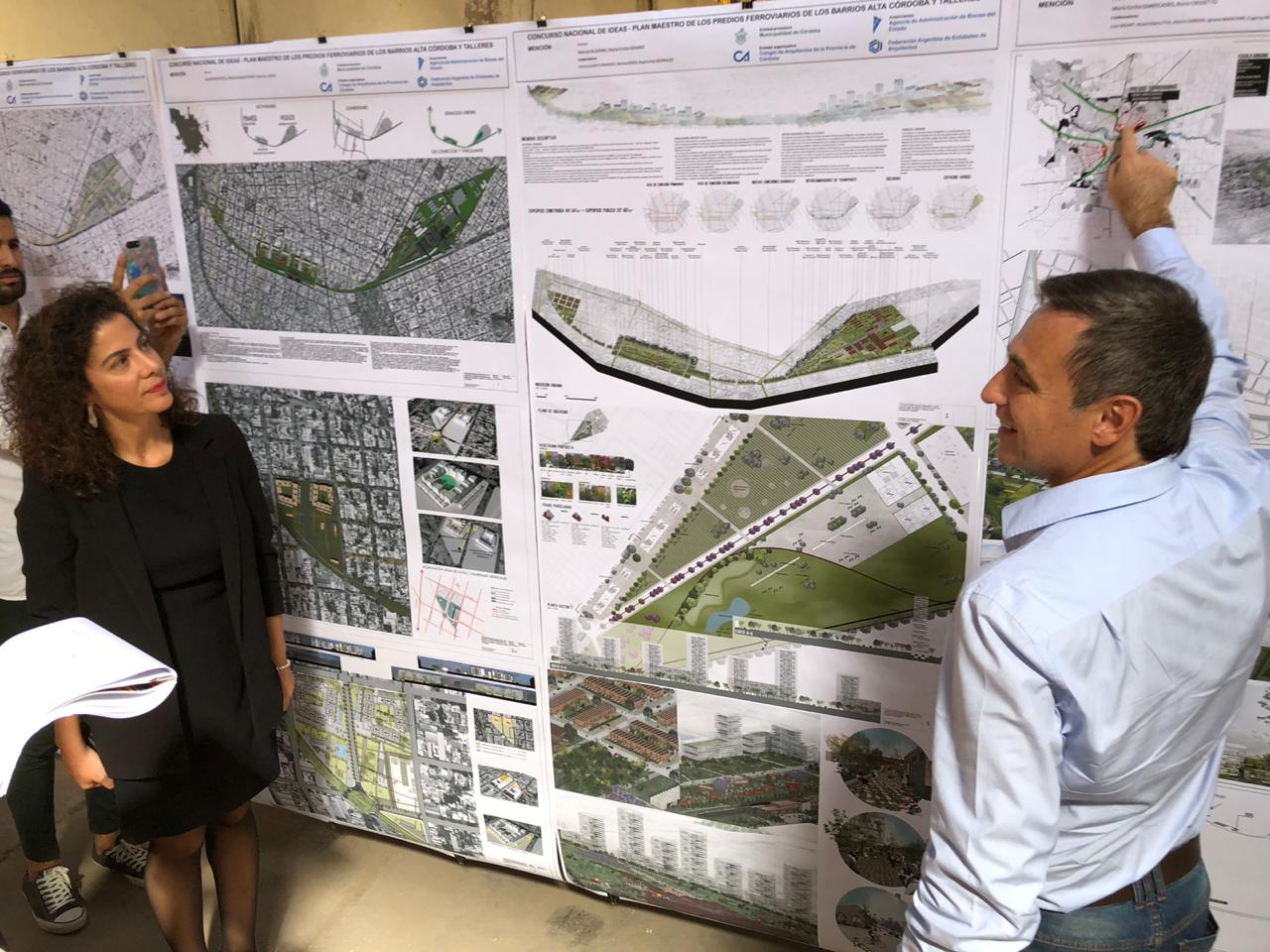Leticia Gómez, Under Secretary of Planning at the Municipality of Córdoba, presented the Master Plan for The Social, Environmental and Urban Recovery of the General Belgrano Railway Premises at the second meeting of the Sustainable Cities Collaboratory in Córdoba in April.
From the community

The meeting encompassed a peer review of the project with other participating cities including Berlin, Bruxelles, Guangzhou, Johannesburg, Montréal and Quito. Following the meeting, the use team spoke to Ms Gómez about the project.
Can you outline the primary objectives of the project and detail its progress to date?
The purpose of the project, a joint initiative of the National State of Argentina and the Municipality of Cordoba, is to re-purpose 62 hectares of property belonging to the national railway system. The National Government has transferred 60% of the land to the Municipality, who inturn, assign urban indicators for the future development of the remaining 40% allowing the construction of mixed uses.
The design of the project’s Master Plan was the result of a public competition. Currently, the local government is implementing the first stage of the plan, which includes construction of two strategic projects, the headquarters of the Municipal Deliberative Council and an Educational Park, in the "Citizen District". The "Citizen District" sub-project includes the construction of community spaces that promote social inclusion, employment opportunities and the regeneration of the social fabric of the area. Part of the territory includes informal settlements that will be dismantled and replaced with new social housing. Additionally, the provision of service infrastructure and community equipment will offer an improved living environment for the local population.
Ultimately, the intervention provides an opportunity to break down the urban barriers created by the railway properties by opening new circulatory axes. Multimodal transport interchange nodes are proposed including the recovery of the rail transport system, and improved systems for pedestrians and cyclists. Buildings belonging to the railway will also be restored to preserve the architectural heritage of the city.
Have there been any (unexpected) challenges in the process for implementing the project? How does the peer-review process help you to face them?
Political continuity is a primary concern for the project. In the last three years, the regulatory and contractual framework for the project has been a priority for the local government. However, as it is a long-term project, it will need to adapt to the changing needs of the city and its citizens. For this reason, the Master Plan approved by the municipal council included the objective to adopt a long term policy in order to prevent the impacts of changes in national and local policies. In this respect, the peer review process emphasized the need to strengthen citizen participation to ensure community support of the project.
Another challenge has been to communicate the monumental scale of the project to the community. The peer review process contributed a number of ideas and experiences carried out in different parts of the world, which serve to enrich and broaden the view on the community aspect, the vitality of public space and the development of economic activities in the project.
The revision process has been very dynamic, with participating experts producing a range of alternative solutions to the challenges of the project.
What lessons learned can you share with other cities to develop and execute an urban regeneration project locally?
The recovery plan of the Belgrano railway is a paradigmatic project for the city of Cordoba. The scale, complexity, and diversity of issues around the project involve the implementation of a complex series of actions and participation of a large number of actors.
The agreement signed between the State Property Management Agency (National Government) and the Municipality of Córdoba (Local Government) includes the approval of a Special Plan that constitutes a legal security mechanism. This guarantees the completion of the development of the project through to its implementation.
The public competition that was held provided a democratic and transparent mechanism to debate large-scale projects for the city. In this sense, the number of ideas and proposals received ensured that the project was well publicized, and also enriched the participative process.
Moreover, a group of key actors are being consulted on different aspects of the project with coordination by the municipal administration. Participatory workshops have been held with neighborhood associations and institutions for the development of the "Educational Park" project.